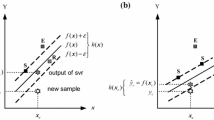Abstract
Supervised model-based self-tuning control of fermentation processes is addressed. The diversity, nonlinearity and time-varying nature of these processes make their control a challenging task. Conventional linear (PID) controllers with fixed parameters cannot meet the increasing performance requirements over the whole operating range. In the approach pursued in this research, a local linear model is identified at the current working point by using a limited amount input–output data obtained through an identification experiment. A linear controller is then tuned on the basis of this model. To minimize the intervention into the process operation, this tuning procedure is only initiated if the performance of the current controller deteriorates. To this end, a supervisory expert system is designed whose tasks are to monitor the process performance, design an appropriate identification experiment, validate the obtained model and tune the controller. The supervisory system is based on a combination of a state automaton with a rule-based fuzzy inference system. Experimental results have demonstrated the feasibility of this approach.
Similar content being viewed by others
References
Årzén, K. E. (1989) An architecture for expert system based feedback control. Automatica, 25, 813-827.
Åström, K. J., Anton, J. J. and Årzén, K. E. (1986) Expert control. Automatica, 22, 276-286.
Åström, K. J. and Hägglund, T. (1988) Automatic Tuning of PID Controllers, Research Triangle Park, USA: Instrument Society of America.
Åström, K. J. and Wittenmark, B. (1989) Adaptive Control, Addison-Wesley.
Doraiswami, R. and Jiang, J. (1989) Performance monitoring in expert control systems. Automatica, 25, 799-811.
Gertler, J. and Chang, H. S. (1986) An instability indicator for expert control. IEEE Control Systems Magazine, (August), 14-17.
Isermann, R. and Lachmann, K. H. (1985) Parameter-adaptive control with configuration aids and supervision functions. Automatica, 21, 625-638.
Martin, J., Corripio, A. B. and Smith, C. L. (1976) How to select controller modes and tuning parameters from simple process models. ISA Transactions, 15(4), 314-319.
Tulleken, H. J. A. F. (1990) Generalized binary noise test-signal concept for improved identification experiment design. Automatica, 26(1), 37-49.
Author information
Authors and Affiliations
Rights and permissions
About this article
Cite this article
Babuška, R., Damen, M.R., Hellinga, C. et al. Intelligent adaptive control of bioreactors. Journal of Intelligent Manufacturing 14, 255–265 (2003). https://doi.org/10.1023/A:1022963716905
Issue Date:
DOI: https://doi.org/10.1023/A:1022963716905




